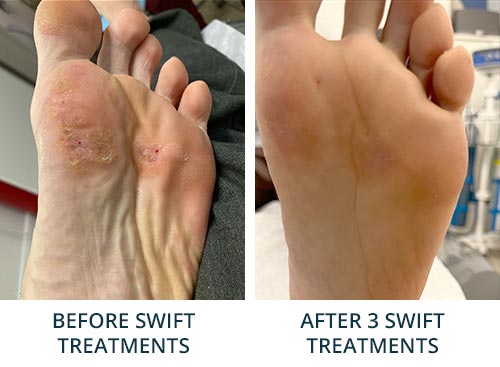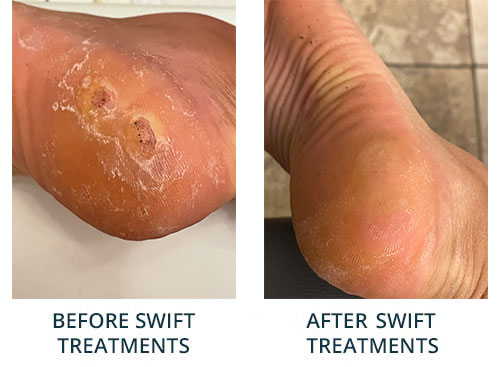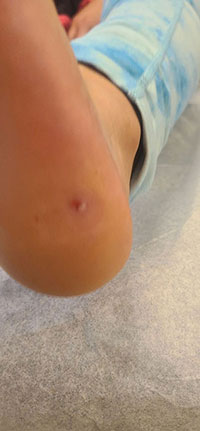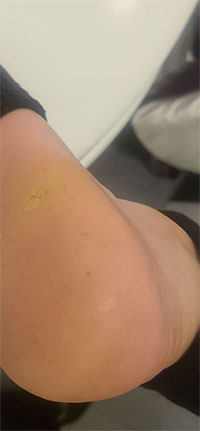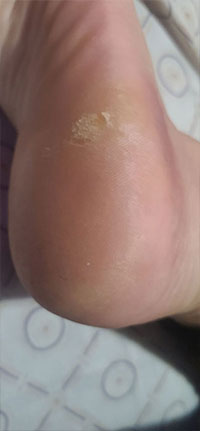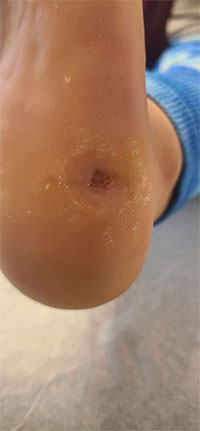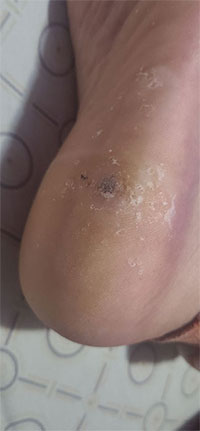
Are you tired of dealing with pesky warts? We at Lenox Hill Podiatry are very excited to announce that we have a brand new and effective treatment for surface based skin lesions, primarily warts.
Plantar warts; a common and stubborn Viral Infection
“Plantar” means “Of the sole” in Latin. Unlike other types of warts, plantar warts are typically quite painful as the pressure from walking and standing forces them to grow into your skin. Like all warts, Plantar warts are caused by the human papillomavirus (HPV) virus, specifically types 1, 2, 4, 60, and 63. Underneath the skin, the wart can have finger-like roots that reach down and grow, making them very difficult to treat effectively from the surface.
What is Swift?
Swift is a cutting edge, FDA Cleared technology that has proven to be highly effective in the removal of plantar warts. It delivers low dose microwave energy through a specialized probe that targets and effectively treats the underlying HPV virus by stimulating a natural immune response in the body. We like to say that we’re addressing the root cause; not the symptom.
What to Expect
Swift protocol involves between 3 and 4 treatments, spaced 4 weeks apart; aligning with the body’s natural immune cycle. Each treatment lasts only 5-10 minutes and is what we call a “sock off - sock on” treatment: Limited debridement, no breaking of the skin, no bandages. No home treatment is required between treatments and patients are able to resume daily activities immediately post treatment.
How effective is Swift?
The Swift technology treatment feels similar to the pain of a small scratch or injection, lasting only a few seconds before immediately subsiding. Some may experience some soreness after the treatment, but not anything strong enough to impair normal day-to-day activities.
Does it hurt?
While pain is variable and patient/lesion specific, most patients typically feel some level of discomfort as infected tissue temperatures are rapidly elevated over a 2 second dose of energy. The pain immediately subsides following cessation of energy delivery and there is very limited post procedural pain, in fact some report an immediate reduction in pain levels. All patients are about to continue on with day-to-day activities immediately following treatment.
When you should come to see us
It’s important to visit a podiatrist if you suspect or feel that you have a plantar wart and are seeking removal. The longer you wait to seek treatment, the more likely the wart is to persist. Here are some common symptoms to look out for:
- You may get the feeling of “painful pebbles” in your shoes.
- You may experience pain when you compress the sides of the wart.
- You may see a circular flat spot on the skin with a depressed area in the middle.
- They may appear “yellowed” with a crust; small black dots can be an easy give away.
- The lesion on your foot is painful, bleeding, or has changed color.
- Treatments you have tried do not work, and the wart reoccurs or multiplies.
- Discomfort that prevents you from doing regular activities.
- Poor sensation in your feet.
- You are unsure if the lesion is a wart.
What to do Next?
If you would like to (a) get rid of your warts and/or (b) explore Swift Treatment, please call our office at (212) 472-8872 to make an appointment with a podiatrist.
Before and After SWIFT treatment
